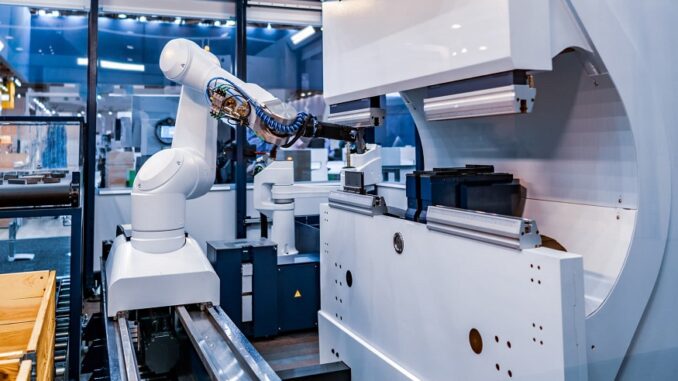
Control systems are central to the operation of any factory or production facility, no matter what the industry. A control system is not just a box that flicks some levers and switches; it must coordinate high-level business decisions with intricate details of how to actually make things . Control often spans all kinds of machines and facilities used in manufacturing, including everything from factory robots to the power distribution system. Control systems are just one part of a complex web of interactions across the industry. If you are setting up a new control system for your plant, who do you trust with all these details?
Control systems integrators (CSIs) fill this role by building communications systems, linking control to the business side of your operation, and even interfacing with machinery that is already installed in your facility. Control systems often incorporate motion control, which is the coordination of high-powered equipment like motors and servos. Control systems are used in all industries; not just manufacturing plants but also in things like power plants and food processing. Control and motion control can be used in everything from packaging machinery to missile guidance.
CSIs are central to the process of setting up these systems, because they need to know how your business works and what you actually plan on doing with this system . Control systems often monitor equipment performance, such as keeping an eye on oil pressure for a pump or motor, or checking if the lights are still on. Control systems also may have advanced diagnostic capabilities to help you figure out where problems are in your system so they can be fixed. Control is often done through programmable logic controller (PLC) devices that send signals to other machinery, while motion control is handled by servo and stepper motors and other high-powered equipment. Control typically demands the highest level of security for your system, because control systems are often interfaced with business management software that contains critical company data. Control also often has the job of interfacing with disparate machines that were previously installed by other companies in earlier phases of your operation.
System integrators need to know about all the equipment they are working with, not just brand names but also things like the underlying technology powering those machines. Control systems might be interfaced to a custom machine you built, or which a smaller company manufactured for you. Control systems need to know about all the ins and outs of that machine’s software and hardware to make sure it integrates correctly into your system. Control systems also need to know how your manufacturing process works so they can coordinate information from all the different types of machines you have set up. Control systems are typically interfaced with business management software that contains critical company data, which means security is a major concern for any control project.
Control systems are just one part of a complex web of interactions across the industry. Control systems are often interfaced with business management software that contains critical company data, which means security is a major concern for any control project. Control also often has the job of interfacing with disparate machines that were previously installed by other companies in earlier phases of your operation.

Leave a Reply
You must be logged in to post a comment.